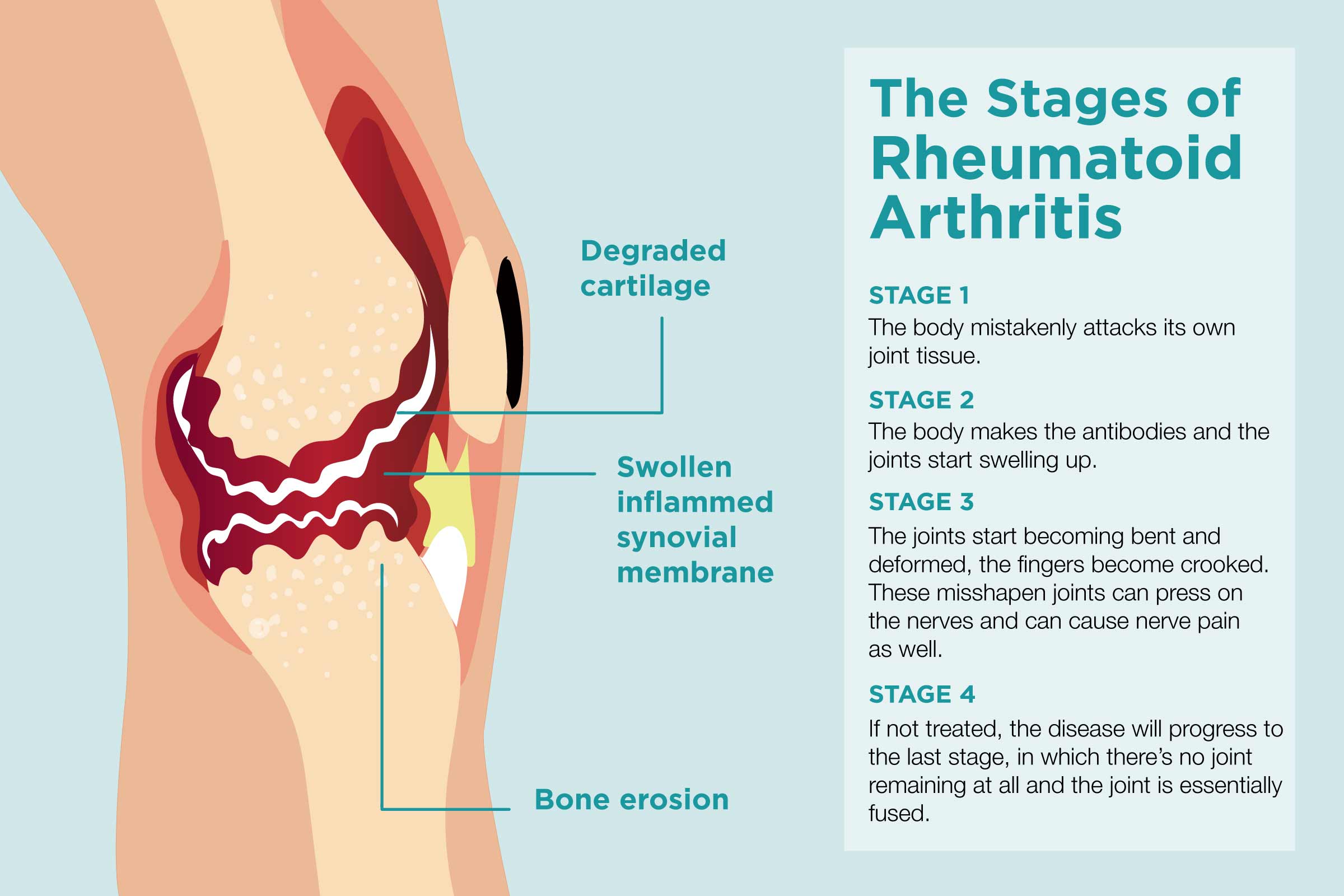Rheumatism, also called rheumatic disorder, refers to any acute or chronic painful affection that impairs the proper functioning of the musculoskeletal system: central and peripheral nervous system, muscles, bones, joints, ligaments, and skin). Rheumatism is characterized by inflammation of the joints and connective tissue, which makes their movements painful and difficult.
There are several types of rheumatic disorder, the most common are:
Periarticular rheumatism – the most common are tendinitis (swelling and irritation of a tendon), bursitis (inflammation of one of your bursa sacs) and periarthritis (Inflammation of the tissues surrounding a joint).
Infectious arthritis or pyogenic arthritis – this form of rheumatism is due to the presence of a germ in the joint; the most common infectious arthritis include gonococcal arthritis and tuberculous arthritis
Microcrystalline rheumatism (microcrystalline arthritis) – commonly known as microcrystalline arthritis, microcrystalline rheumatism is resulted from the presence of crystals in the joint or tendons. The most common include gout and articular chondrocalcinosis.
Degenerative arthritis – also known as degenerative joint disease or osteoarthrosis, degenerative arthritis is caused by the degeneration and wearing down of a joint. This degeneration can be due to mechanical causes (lifting a heavy weight for instance) or certain medical conditions such as carpal tunnel syndrome, numbness and muscle weakness in the hand due to a comprehension of the median nerve at the wrist.
Inflammatory rheumatism develop, most of the times, due to complications of one of the following systemic diseases when they are untreated or poorly treated: rheumatic fever, rheumatoid arthritis, spondyloarthropathy, psoriatic arthritis, lupus erythematosus, polymyalgia rheumatic, or Henoch–Schönlein purpura (also known as allergic purpura or anaphylactoid purpura).
Alternative Treatment
 The way you eat determines the quality of your health. The very foods you eat can not only help your body to stay healthy but also prevent or even eradicate many medical conditions including rheumatism. If you suffer from rheumatism; it is important that you adopt a vegan diet and avoid saturated fats. It is recommended to not eat red meat, but fish, fruit and vegetables. It is better to eat raw or steamed vegetables to preserve their curative effects. In addition, you should drink distilled water and fresh juice several times a day.
The way you eat determines the quality of your health. The very foods you eat can not only help your body to stay healthy but also prevent or even eradicate many medical conditions including rheumatism. If you suffer from rheumatism; it is important that you adopt a vegan diet and avoid saturated fats. It is recommended to not eat red meat, but fish, fruit and vegetables. It is better to eat raw or steamed vegetables to preserve their curative effects. In addition, you should drink distilled water and fresh juice several times a day.
Rheumatism Prevention
Eat plenty of the following four vegetables if you have a rheumatic disorder:
Celery – celery is a potent natural anti-inflammatory. Its leaves and roots are rich in aromatic essence, resin, B vitamins and minerals. In short, drink juice every day; it is tonic and antirheumatic.
Garlic – Garlic is rich in potassium, trace elements, vitamins and iodine. In addition, garlic is a diuretic. Like most people, perhaps you do not like the flavor; nevertheless, if you consume it every day, you will surely praise its health benefits.
After having cut in small pieces in the evening, soak 3 gloves of garlic in a cup of water throughout the night, and drink the solution tomorrow morning on an empty stomach. Along with a healthy diet and exercice, all rheumatic pain will disappear within 3 weeks of doing this remedy.
Note: during the treatment, do not eat iced foods, do not eat pork meat, avoid all saturated fats and exercise regularly if you can.
Cabbage – regular eating of raw cabbage relaxes the joints and beautifies the skin. It is low in calories but rich in vitamin C and vitamin K. cabbage contains a sulphurous essence which makes it repellent and antiseptic; however, it is beneficial for rheumatism. It is preferable to use red cabbage.
Tomato – tomato is a potent antirheumatic and antioxidants. In addition, tomato has anti cancer property. If you are struggling with rheumatic disorder, drink a large glass of tomato juice every day to protect your cartilage.
Note: be careful with green tomatoes; they can be poisonous.
Ginger – In China as in many other countries in the world, ginger is used as a remedy for many ailments such as rheumatism, malaria impotence and colds. Several studies indicate that ginger may be useful for controlling problems associated with rheumatoid arthritis, dyspepsia, impotence, rheumatic pain, intestinal gas, colic, diarrhea, spasms and other stomach problems. Ginger is more effective when you buy fresh root and make your own tea.



